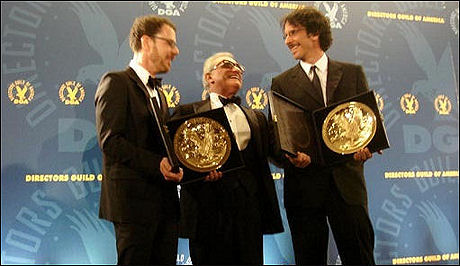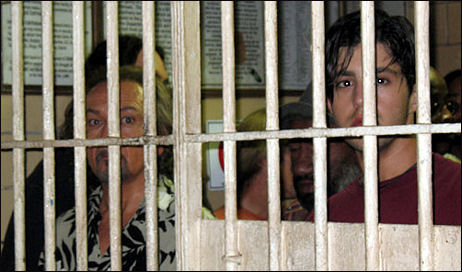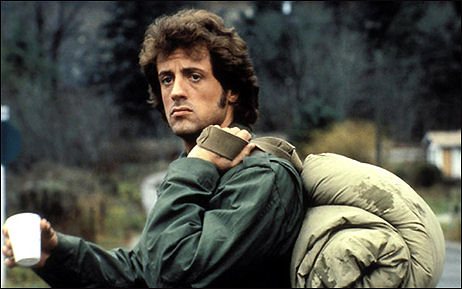Last night the legendary Cate Blanchett — the great actress of our day, the under-40 Meryl Streep — did the old stage-chat-and-film-clips routine with Leonard Maltin at Santa Barbara’s Arlington theatre. She’s compulsively honest, a marvellous wit, fast on her feet, always with a good story or a fresh thought. And she’s about six or seven months pregnant, to judge by the size of her kangaroo pouch.
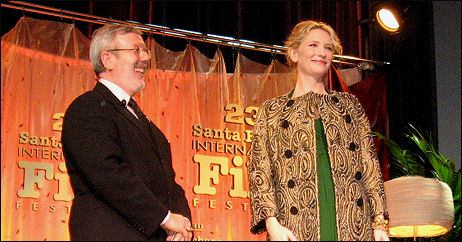
Leonard Maltin, Cate Blanchett at last night’s Santa Barbara Film Festival “Modern Master Award” tribute at the Arlington theatre — Saturday, 10.24.06, 6:25 pm
Blanchett should win the Best Supporting Actress Oscar for her I’m Not There performance for the simple reason that it’s ten times the performance that Amy Ryan gives in portraying a low-life, coke-snorting Dorchester mom in Gone Baby Gone. My gut tells me this isn’t cutting enough ice with Academy voters to assure a Blanchett win, but maybe not.
I left a little before the end of the show and walked down State Street with my nickle-and-dime umbrella, braving the sporadic rain and gusty, tree-bending winds. I eventually arrived at the after-party location only to discover that the good and gracious people putting on the event had decided to make early arrivers like myself stand outside and wait for a bit.
You have to be hard in the party-planning business. You can’t let the idea of guests suffering the elements for 10 or 15 minutes affect your resolve. A bunch of us were huddled together like sheep against the light downpour and the blustery air currents, but I’m glad the party-planners showed their mettle. I enjoyed shivering outside and getting damper by the minute. It was good for my soul so I’m glad I went…really.
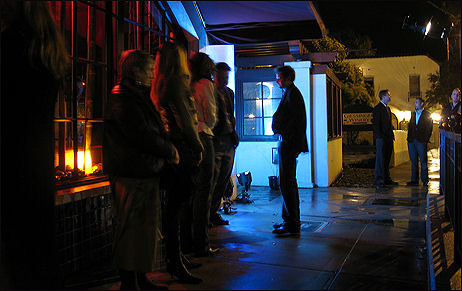
You can’t see the rain or the wind in this photo of waiting guests, but trust me — they were there.


